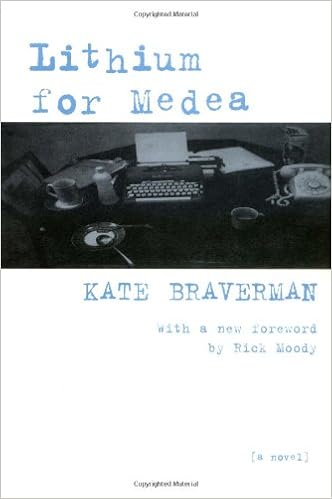I remember Braverman saying, from classes I took from her years ago, that she felt this first novel a bit overwritten--if still a lovely offspring (as firsts generally do bear a certain fondness in our hearts). I could see, perhaps, some overwriting, but really, this work seemed a very well-wrought piece. If the overwriting is anywhere, it is not on a sentence level but on that of plot: the poor protagonist has a dying father, an estranged mother with an estranged grandmother, an ex-husband who "leaves" her for Star Trek and other intellectual pursuits, a current lover who deals the narrator drugs and spends his time with other women, and so on. There is not much that is not wrong with this woman's life. But dysfunctional families and people are often the heart of novels, and there was, at bottom, it seemed to me, a kind of loving that came through between the protagonist and her parents, even if on the surface much seems wrong.
I'm also a bit taken aback by what I was writing at the time, which seems in many ways not unlike this first novel of Braverman's--a tale of family troubles with a dying mom (instead of dad). I feel as if I was probably conjuring Braverman while in her class, though I had not read this book. And I can see also how Braverman's ideas about writing come through in this work. You write good sentences and then you string a plot in afterward--you write the air, and then put a net on it. That seemed true hear. There was lots of air, lots of little chunks of things, that somehow got wrapped into this plot. Such makes for a work in which plot is not a centerpiece. We're not dying to know whether dad will live so much as to know what the next turn of phrase will be. That's why one reads Braverman--for the poetry.
And here, the language, of course, is lovely, as Braverman's language usually is. She makes metaphors seem so effortless and natural. But also what I was struck by with this text is how she uses the short sentence. The sentences are much shorter than I would expect, than I remember, for something so full of poetic language. It's as if she mixes her Hemingway with her Nabokov, and it is wonderful.
Subscribe to:
Post Comments (Atom)







No comments:
Post a Comment